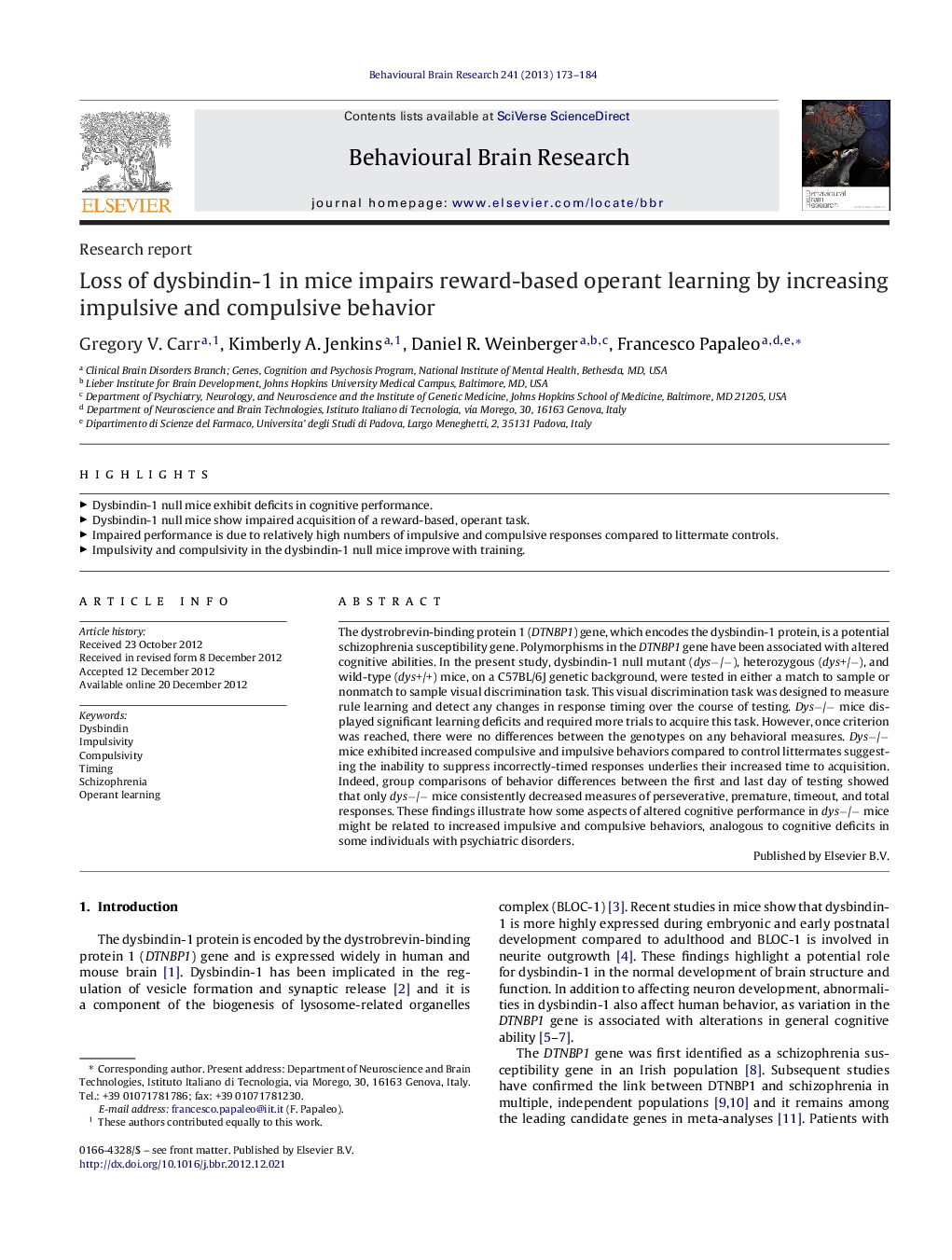| کد مقاله | کد نشریه | سال انتشار | مقاله انگلیسی | نسخه تمام متن |
|---|---|---|---|---|
| 6259204 | 1612991 | 2013 | 12 صفحه PDF | دانلود رایگان |

The dystrobrevin-binding protein 1 (DTNBP1) gene, which encodes the dysbindin-1 protein, is a potential schizophrenia susceptibility gene. Polymorphisms in the DTNBP1 gene have been associated with altered cognitive abilities. In the present study, dysbindin-1 null mutant (dys−/−), heterozygous (dys+/−), and wild-type (dys+/+) mice, on a C57BL/6J genetic background, were tested in either a match to sample or nonmatch to sample visual discrimination task. This visual discrimination task was designed to measure rule learning and detect any changes in response timing over the course of testing. Dys−/− mice displayed significant learning deficits and required more trials to acquire this task. However, once criterion was reached, there were no differences between the genotypes on any behavioral measures. Dys−/− mice exhibited increased compulsive and impulsive behaviors compared to control littermates suggesting the inability to suppress incorrectly-timed responses underlies their increased time to acquisition. Indeed, group comparisons of behavior differences between the first and last day of testing showed that only dys−/− mice consistently decreased measures of perseverative, premature, timeout, and total responses. These findings illustrate how some aspects of altered cognitive performance in dys−/− mice might be related to increased impulsive and compulsive behaviors, analogous to cognitive deficits in some individuals with psychiatric disorders.
► Dysbindin-1 null mice exhibit deficits in cognitive performance.
► Dysbindin-1 null mice show impaired acquisition of a reward-based, operant task.
► Impaired performance is due to relatively high numbers of impulsive and compulsive responses compared to littermate controls.
► Impulsivity and compulsivity in the dysbindin-1 null mice improve with training.
Journal: Behavioural Brain Research - Volume 241, 15 March 2013, Pages 173–184